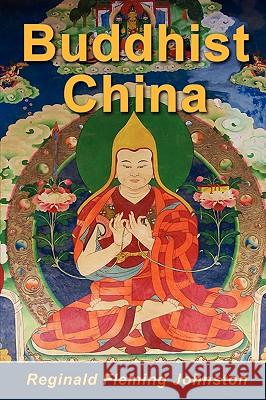Buddhist China » książka
Buddhist China
ISBN-13: 9780968045930 / Angielski / Miękka / 2008 / 308 str.
Buddhist China
ISBN-13: 9780968045930 / Angielski / Miękka / 2008 / 308 str.
(netto: 83,08 VAT: 5%)
Najniższa cena z 30 dni: 86,03
ok. 16-18 dni roboczych.
Darmowa dostawa!
Written in 1913, this book provides a historical perspective on Buddism in China as well as detailed descriptions of legends of the past, the temples in existence in the early 1900s, and a remarkable sense of insight into the revolutionary times and the impact on Buddhist. Johnston writes dearly of his times in China.The early chapters of this book deal with the origin and development of some characteristic features of Mahayana Buddhism, especially in respect of the forms assumed by that branch of the Buddhist system in its Chinese environment. The sixth and seventh chapters are concerned with religious pilgrimages in China, and with those sacred mountains which are the homes of Chinese monasticism arid the radiating centres of Buddhist influence. Of these favoured seats of religious activity, the six last chapters contain detailed accounts of two which are taken as typical namely, the holy mountain of Chiu-hua, in the province of Anhui, and the holy island of Puto (Pootoo), off the coast of Chehkiang.The author is glad to record his grateful appreciation of the unvarying courtesy and hospitality extended to him by the abbots and monks in whose romantic mountain-homes he has spent the happiest days of his fifteen years sojourn in China. Whatever may be the ultimate fate of Buddhism, he earnestly hopes that neither his kindly hosts nor their successors will ever be driven away from the quiet hermitages which they so justly love; and that it may continue to be Chinas glory and privilege to provide, amid the forests and crags and waterfalls of her cloistral mountains, homes or resting-places for all pilgrims to the shrines of truth and beauty.Johnston is well known as the tutor to the last emperor and one of the few foreigners allowed inside the walls of the Forbidden City. His book Twilight in the Forbidden city was the basis of the movie The Last Emperor.











